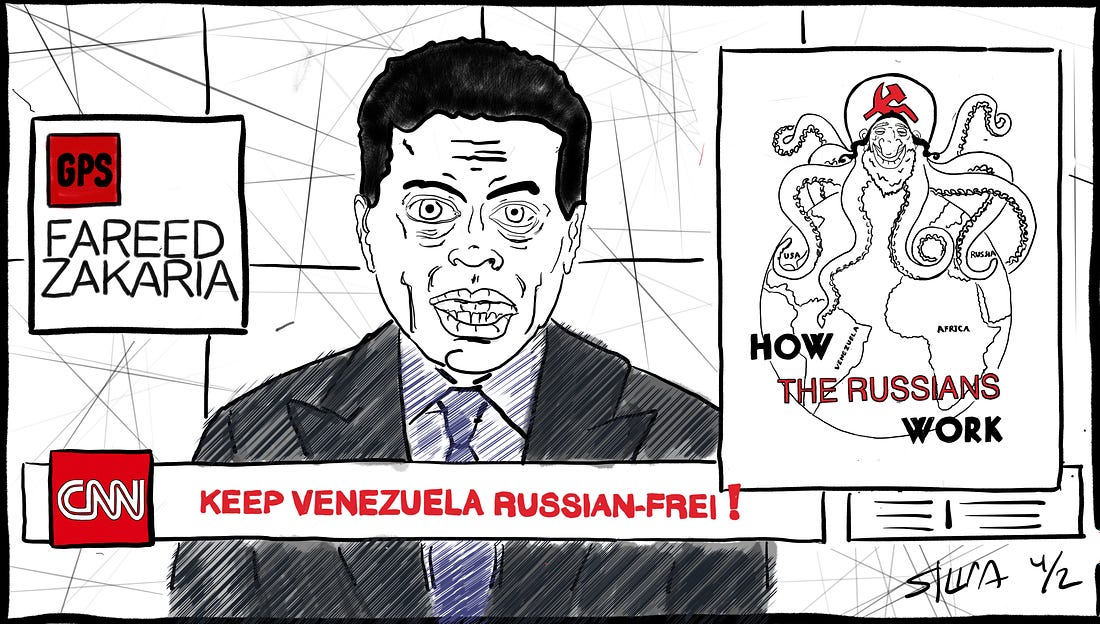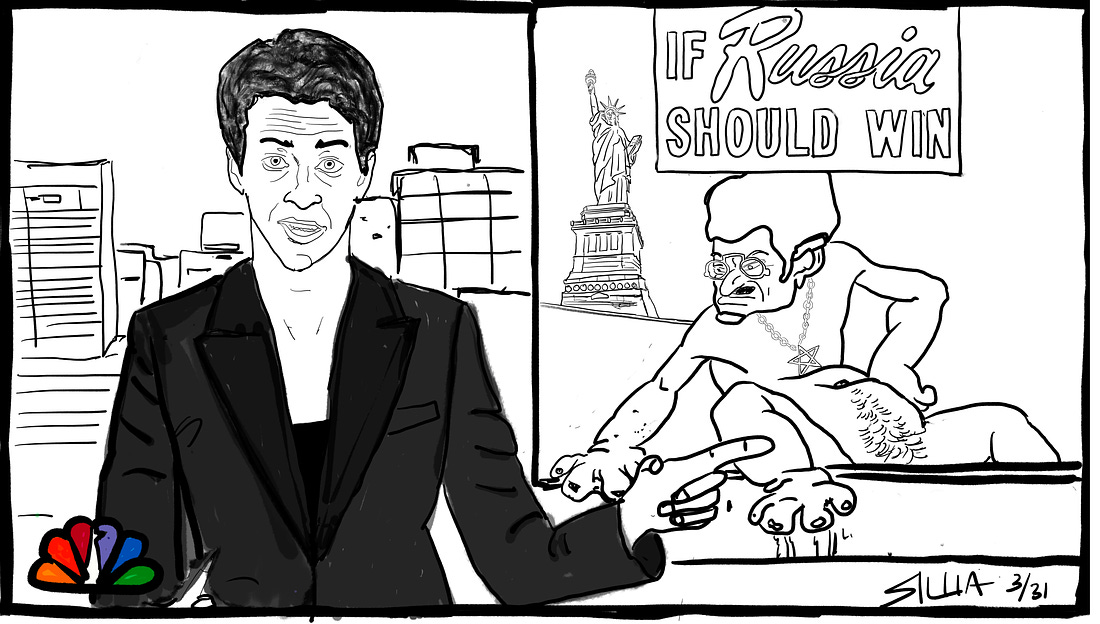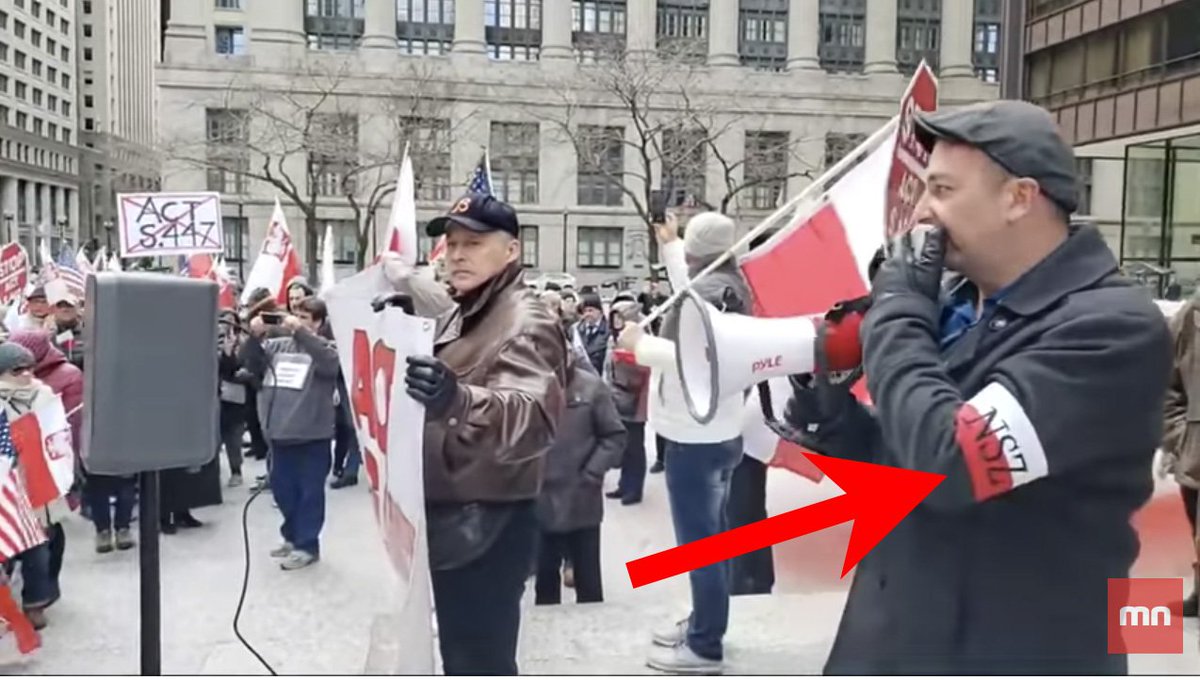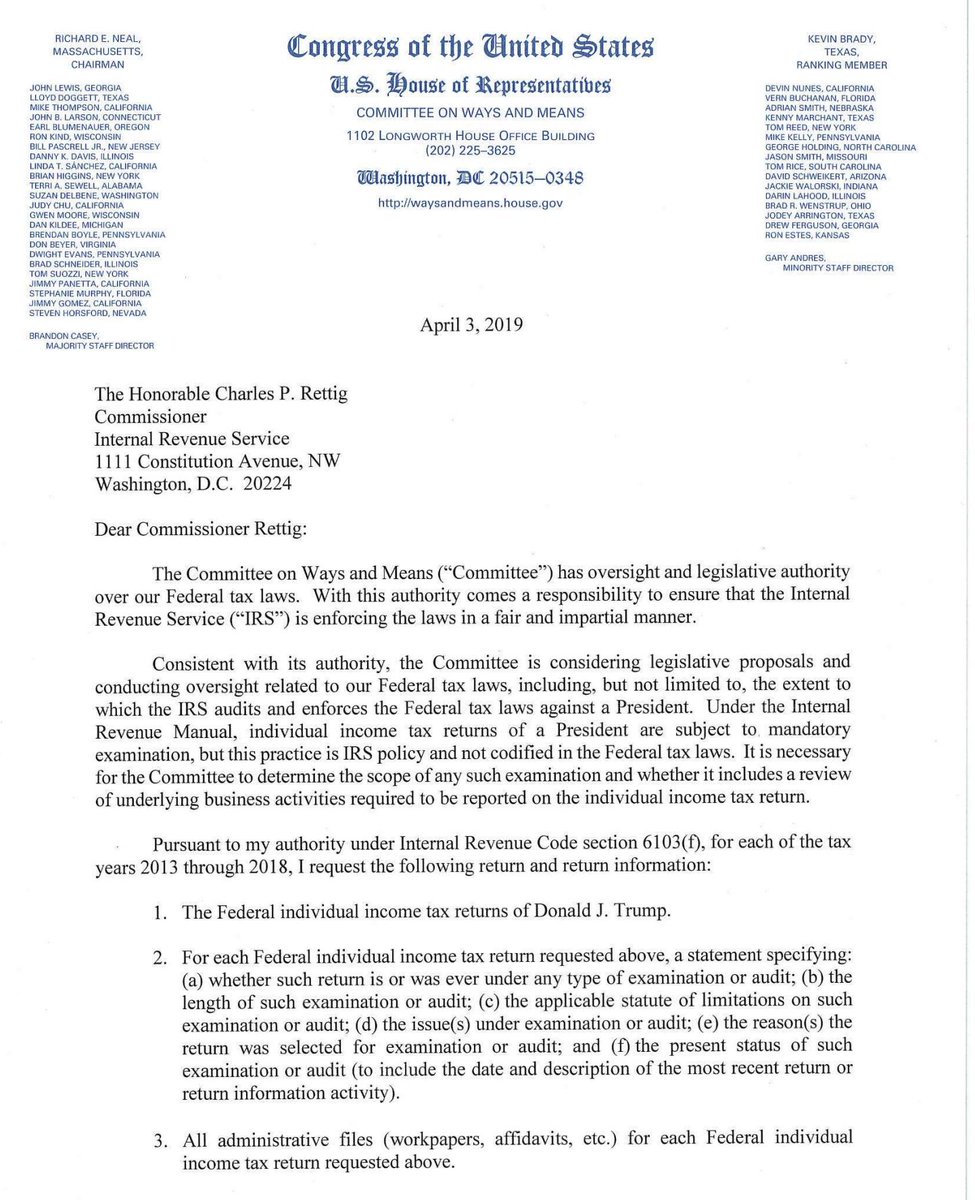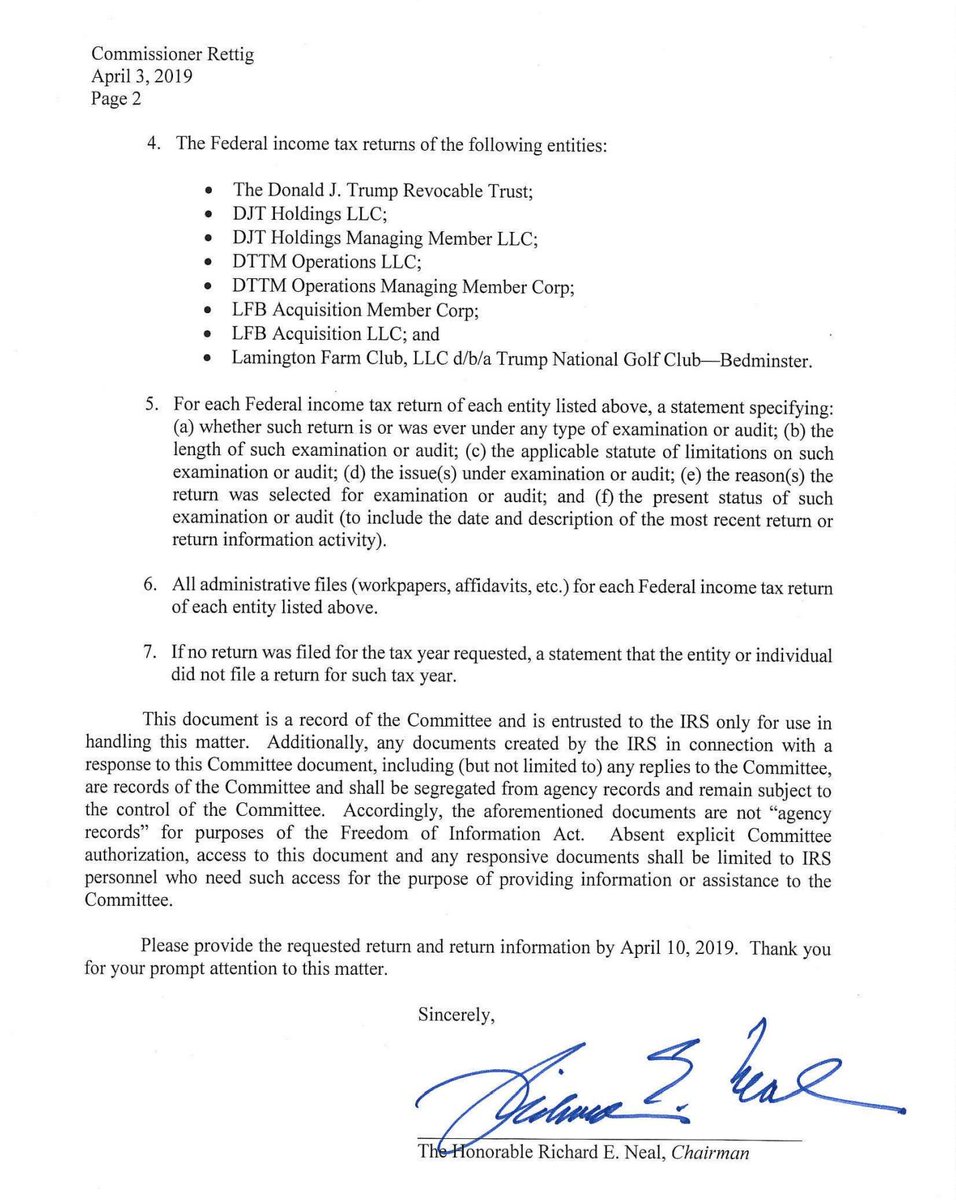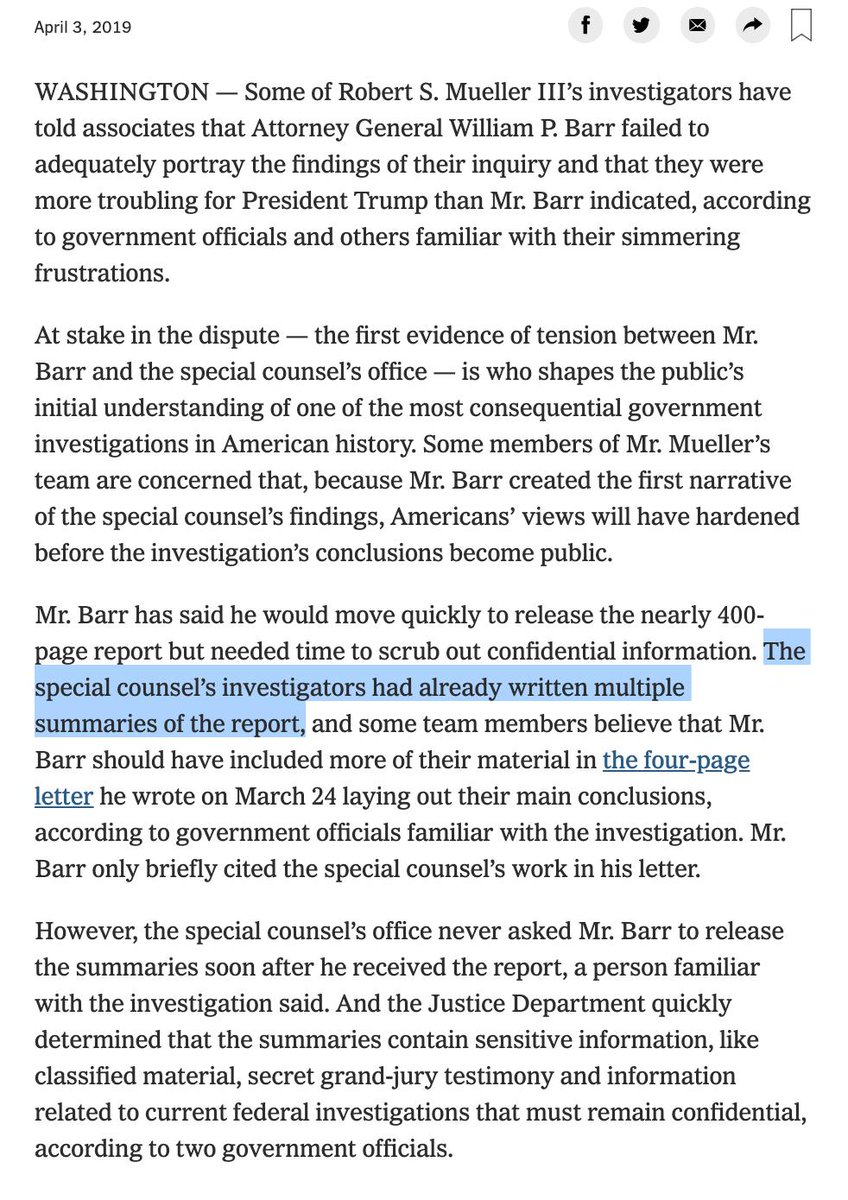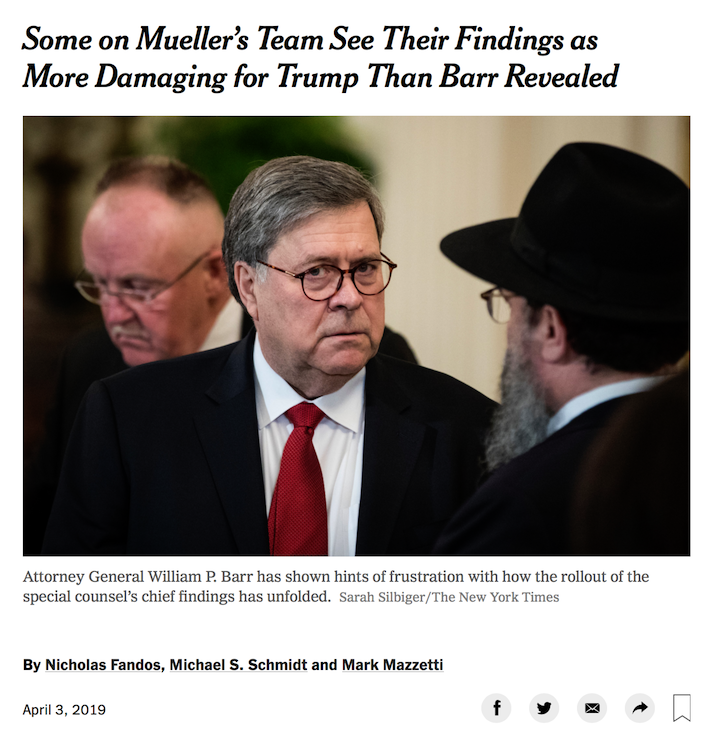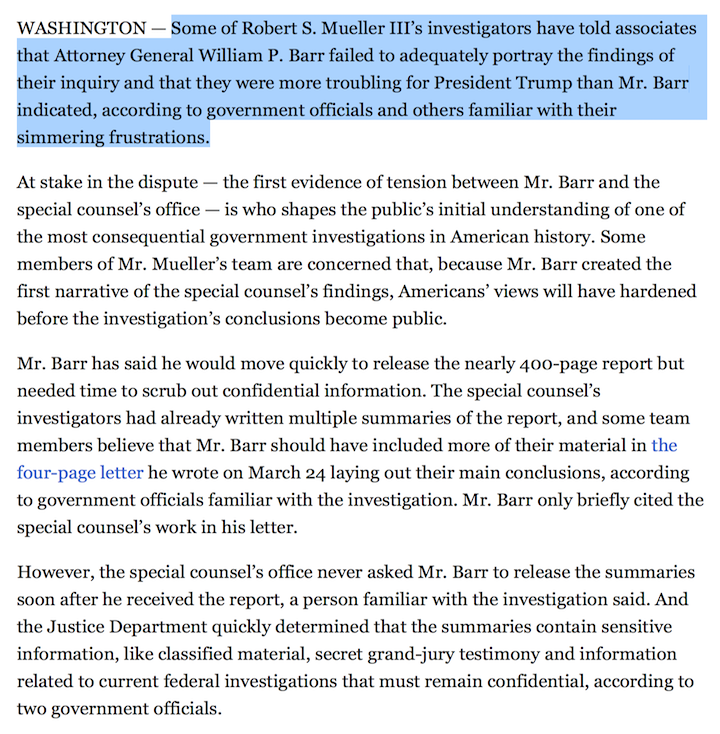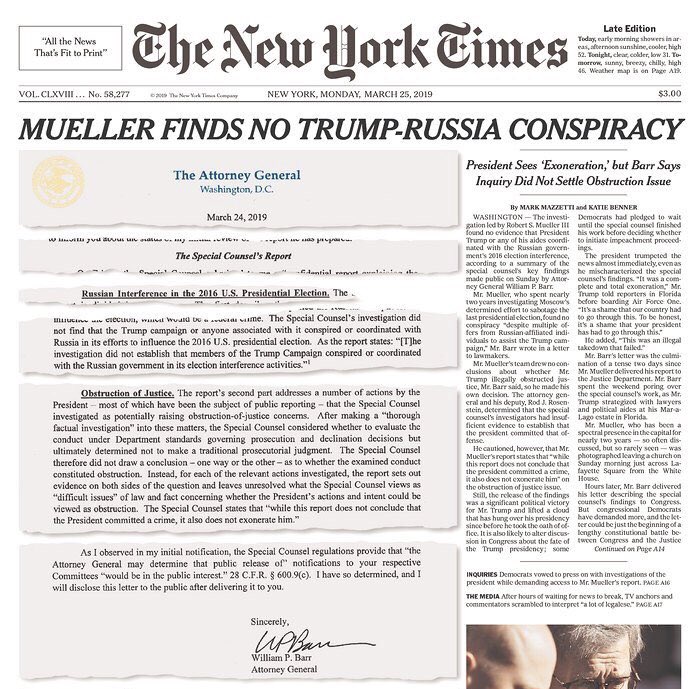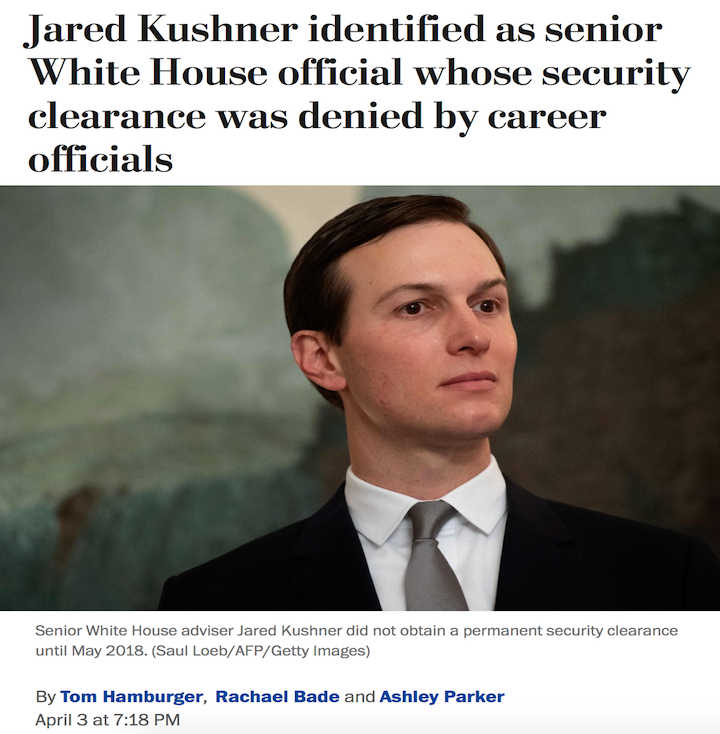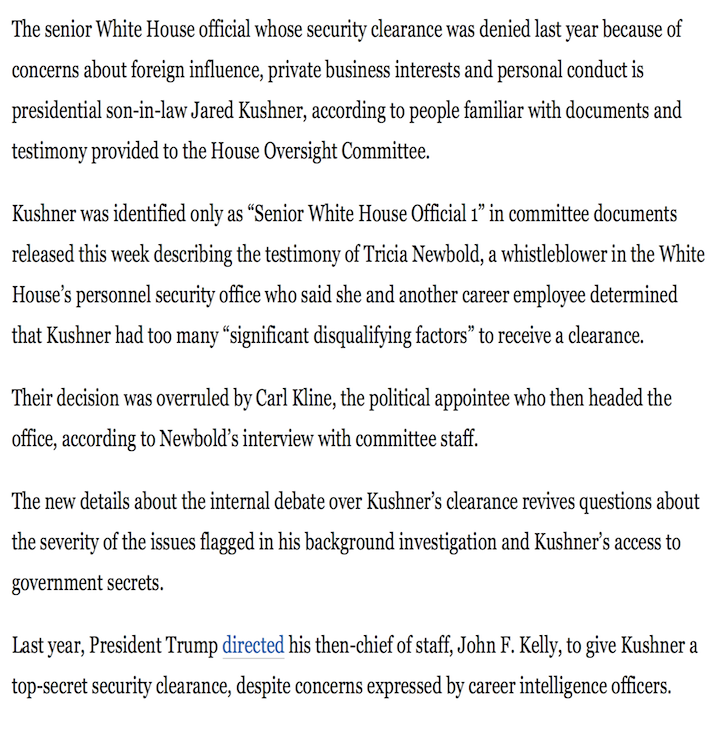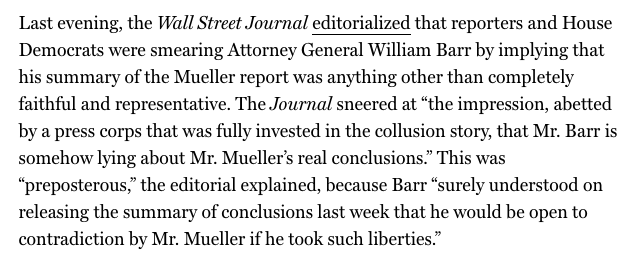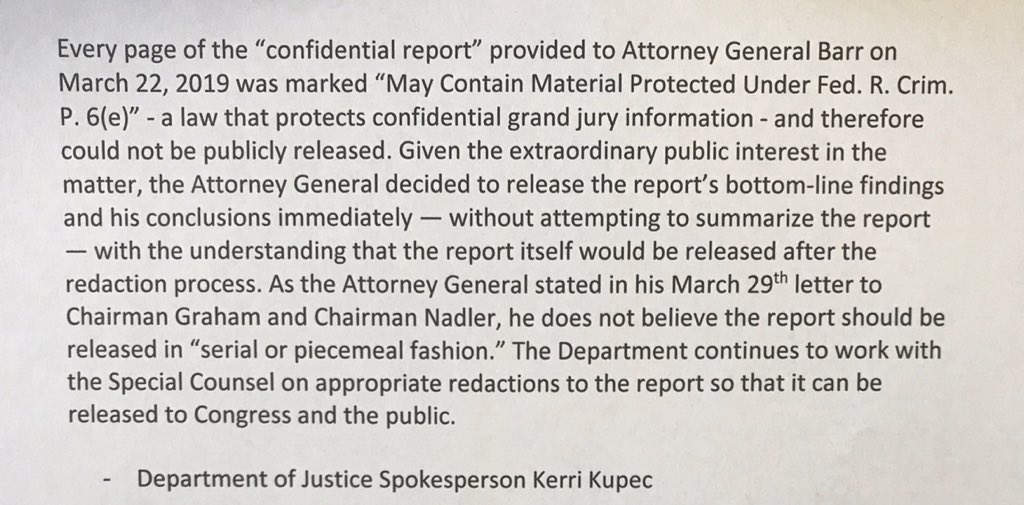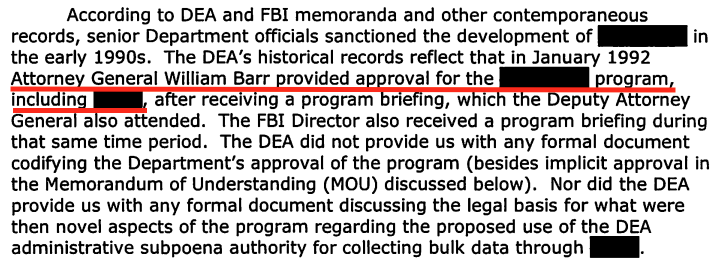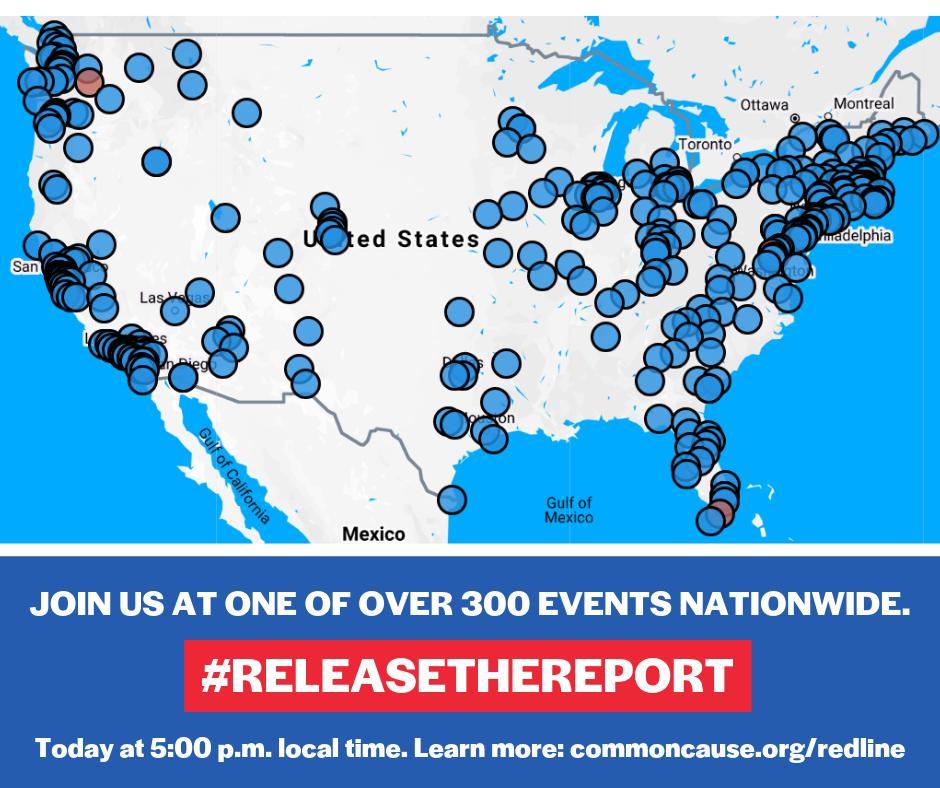Judge Won’t Release Identity Of Mystery Foreign Company Resisting Mueller Subpoena
Tierney Sneed
U.S. District Court of D.C. Chief Judge Beryl Howell said Monday that she would not order that the identity of a foreign-owned company at the heart of a mystery special counsel Robert Mueller grand jury case be made public.
Her opinion — responding to a press freedom group’s request that more information about the highly secretive grand jury case be released — will allow for additional documents in the subpoena dispute to be unsealed. However, those documents will be redacted, her order said, to protect information sensitive to the grand jury investigation, which prosecutors say is ongoing.
“The parties shall do their best to identify material that may be released without compromising matters occurring before the grand jury,” Howell said. “Maintaining grand jury … secrecy is paramount.”
The identity of the company that sought to challenge the subpoena last year has remained a mystery, even as other details about the case slowly become known. The company’s American lawyers have been identified, and many details of its legal arguments have also been made public, due to filings that were unsealed from the proceedings when they were at the appellate court and Supreme Court level.
The company received the document request last summer, and challenged the subpoena on the basis of the Foreign Sovereign Immunities Act. Both Howell and the appellate court ruled against it, while the Supreme Court declined to take up the case. The company is now facing a $50,000 per day fine for resisting the subpoena.
Notably, Howell is the same judge who will be weighing a request by the same press freedom group, The Reporters Committee for Freedom of the Press, to authorize the release of grand jury material in Mueller’s report submitted to Attorney General Bill Barr.
https://talkingpointsmemo.com/muckraker ... r-subpoena
America Is Done Waiting for the Mueller Report
April 1, 2019
Someday, Trump will not be in office. Congress needs a full accounting of his misdeeds to ensure they don’t happen again.
By Jerrold L. Nadler
Mr. Nadler is the chairman of the House Judiciary Committee.
Matt Chase
Last Sunday, Attorney General William Barr sent us a letter summarizing what he says are the “principal conclusions” of the special counsel, Robert Mueller. The next day, together with five other committee chairmen, I wrote back to the attorney general, demanding that he provide us with the full Mueller report — not a summary, but the full report and all of the relevant evidence — by April 2.
For nearly two years, the country has waited to read the report. Over those many months, President Trump has raged against the institutions that make our democracy possible — among them, the free press, the courts and his own Department of Justice. When the special counsel indicted members of the president’s inner circle, his attacks got louder.
Before the formal investigation began, Mr. Trump fired his F.B.I. director. He later fired his attorney general. He reportedly attempted to fire the special counsel himself. Despite this profoundly unacceptable behavior, the special counsel persevered and wrote his report.
We — the members of the Judiciary Committee, the House of Representatives and the entire American public — are still waiting to see that report. We will not wait much longer. We have an obligation to read the full report, and the Department of Justice has an obligation to provide it, in its entirely, without delay. If the department is unwilling to produce the full report voluntarily, then we will do everything in our power to secure it for ourselves.
The entire reason for appointing the special counsel was to protect the investigation from political influence. By offering us his version of events in lieu of the report, the attorney general, a recent political appointee, undermines the work and the integrity of his department. He also denies the public the transparency it deserves. We require the full report — the special counsel’s words, not the attorney general’s summary or a redacted version.
We require the report, first, because Congress, not the attorney general, has a duty under the Constitution to determine whether wrongdoing has occurred. The special counsel declined to make a “traditional prosecutorial judgment” on the question of obstruction, but it is not the attorney general’s job to step in and substitute his judgment for the special counsel’s.
That responsibility falls to Congress — and specifically to the House Judiciary Committee — as it has in every similar investigation in modern history. The attorney general’s recent proposal to redact the special counsel’s report before we receive it is unprecedented. We require the evidence, not whatever remains after the report has been filtered by the president’s political appointee.
On its face, the attorney general’s letter raises more questions than it answers. He tells us, for instance, that he declined to charge the president with obstruction in part because there was no underlying crime to obstruct.
Did he discuss that conclusion with Deputy Attorney General Rod Rosenstein — who, while a federal prosecutor, routinely charged individuals with obstruction without charging the underlying crime? Did the attorney general forget that the special counsel indicted 37 other people, including the president’s campaign chairman, deputy campaign chairman and former national security adviser, for various crimes, including conspiracy against the United States? Did he lose track of his own prosecutors, who effectively named the president as an unindicted co-conspirator in the Southern District of New York?
Second, we require the report because Congress has a role that is fundamentally different from that of the Department of Justice. The special counsel’s mandate was narrow: investigate allegedly criminal conduct stemming from links between the Trump campaign and the Russian government. Our job is to hold the president accountable any time he undermines the rule of law, and is not limited to his involvement with the Russian government during the campaign.
Whether or not the president could have been charged with a crime, even the attorney general acknowledges the existence of evidence that has so far been hidden from view. We have every reason to suspect that the unedited obstruction section of the Mueller report resembles the report that Congress received from the Watergate grand jury in 1974. That evidence showed that President Richard Nixon had attempted to obstruct justice. It did not recommend that the president should be prosecuted. It did not say the president should be impeached. It simply stated the evidence so that Congress could do its job.
Finally, we require the report because one day, one way or another, the country will move on from President Trump. We must make it harder for future presidents to behave this way. We need a full accounting of the president’s actions to do that work.
When the full scope of the president’s misconduct has been revealed, when his lies are debunked and his abuses have been laid bare, I believe that members of Congress on both sides of the aisle will draft legislation to curb the worst of his offenses. Put another way: If President Trump’s behavior wasn’t criminal, then perhaps it should have been.
https://www.nytimes.com/2019/04/01/opin ... ked=google
Cummings tonight told us it is “a million times worse” than Clinton emails.
“Because what you have here are people who literally have the top secrets of the world ... and they have not been properly cleared ... That should alarm each and every American”
Cummings: Whistleblower says White House pushed for security clearances despite 'serious disqualifying issues'
(CNN) — A White House staff member has told House investigators that senior officials have overruled concerns raised about 25 individuals whose security clearances were initially denied over a range of disqualifying issues -- such as fears about foreign influence and potential conflicts-of-interests -- warning of the grave implications to national security, according to a senior Democratic lawmaker.
Now House Oversight Chairman Elijah Cummings plans to issue a subpoena this week demanding an interview with Carl Kline, who served as the personnel security director at the White House during President Donald Trump's first two years in office -- as part of the Democrats' investigation into the handling of the security clearance process, including for Trump's son-in-law, Jared Kushner, and the President's daughter, Ivanka Trump, who are both also White House advisers.
Cummings released a memo Monday detailing an interview with Tricia Newbold, a White House employee who has worked for 18 years in Republican and Democratic administrations and currently serves as the Adjudications Manager in the Personnel Security Office. According to the memo, Newbold, whom Cummings described as a whistleblower, alleges that the White House has overturned the denials of 25 individuals, including two current senior White House officials, saying those decisions were occurring "without proper analysis, documentation, or a full understanding and acceptance of the risks."
"According to Ms. Newbold, these individuals had a wide range of serious disqualifying issues involving foreign influence, conflicts of interest, concerning personal conduct, financial problems, drug use, and criminal conduct," Democratic committee staff write in the memo.
A source familiar with Newbold's case told CNN Kushner and Ivanka Trump are on the list of 25 individuals.
The interview took place on March 23.
Elijah Cummings: White House officials using personal accounts to do official work
During a full day of questioning before Democratic and Republican staff on the committee, Newbold aired out an array of concerns about the security clearance process, saying that the White House had stopped doing credit history checks during the review process, lacked security for personnel files and adequate staff during the review process, and allowed for an "unusually high" number of interim security clearances, including for some individuals "who were later deemed unsuitable for access to classified information," according to the memo. And Newbold contended White House officials retaliated against her because she would not easily greenlight security clearances, alleging they sought to "humiliate her" because of her "rare form of dwarfism" by placing personnel security files she needed out of her reach.
"I would not be doing a service to myself, my country, or my children if I sat back knowing that the issues that we have could impact national security," Newbold told the committee, according to the memo.
Newbold's lawyer says she does not have official whistleblower protection because her case is still making its way through the Office of Special Counsel adjudication, which can take a long time. The lawyer, Ed Passman, says there's no such thing as official whistleblower protection but that the office can offer some protections.
The White House did not immediately respond a request for comment, nor did Kline.
The top Republican on the committee, Rep. Jim Jordan of Ohio, called Cummings' memo "unfortunate and disappointing" and "a partisan attack on the White House." Jordan said that GOP members were not given adequate time to prepare for the Newbold interview.
"Furthermore, the memo mischaracterizes the information shared by Ms. Newbold. For instance, the twenty-five examples of overruled recommendations by Ms. Newbold heralded by the Democrats include non-political officials such as a GSA custodian."
On Monday afternoon, Jordan's staff issued a nine-page memo rebutting Cummings, saying that the Democrats "cherry-picked" information from Newbold's interview to assert that the White House had poor procedures over national security matters. Jordan's staff argued that Newbold was unhappy with her work environment and that her main concerns centered on Kline, arguing she knew little about why specific individuals' security clearances had been denied, who overrode those denials and their rationale for doing so. The staff's memo said Newbold told the investigators that just "four to five" individuals out of the 25 had been denied clearances for "very serious reasons," saying just three were current and former employees of the White House.
"If Kline overturned only -- at most -- five clearance adjudications with very serious concerns out of 5,000, Ms. Newbold's concerns seem very overblown," the memo said.
Under the law, the President does have final say when it comes to allowing employees access to classified materials, something that Newbold acknowledged to House investigators, according to the memo.
But Cummings has raised concerns that the White House has ignored basic standards for providing security clearances, instead allowing his inner circle access to the country's innermost secrets without regard to the concerns raised by career professionals. CNN reported last month that Trump pressured senior White House officials to grant Ivanka Trump a security clearance, while The New York Times reported that Trump did the same for Kushner.
The memo does not specify the names of the individuals whose security clearances were initially denied -- only to be overruled by the White House. But it does provide some detail about situations involving two senior White House officials and another who used to work for the National Security Council.
Top oversight Democrat accuses White House of 'unprecedented level of stonewalling, delay and obstruction'
For "senior White House official one," Newbold alleged that the individual's security clearance was denied after the background check revealed "significant disqualifying factors, including foreign influence, outside activities ... and personal conduct." But, she alleged, Kline overruled her recommendation to reject the clearance and merely noted "the activities occurred prior to Federal service," prompting concerns from another federal agency after the official applied for an even higher security clearance.
Similarly, after concerns were raised about "senior White House official two," including over the potential of foreign influence, Kline said "do not touch" the case in a conversation with Newbold, according to the memo, and the individual's security clearance was approved.
For "senior White House official three," who worked at the National Security Council, Kline told Newbold to "change the recommendation" against providing a security clearance, something she said she refused to do.
"I said I would absolutely not," Newbold told the committee.
In their rebuttal memo, Jordan's staff said Newbold had "no direct knowledge" about why Kline overruled her recommendation on the first White House official, and that she acknowledged she did not work on the second White House official's case "specifically." The Jordan memo also contended that the third White House official had never obtained a final security clearance.
Along with releasing the memo Monday, Cummings sent a letter to White House counsel Pat Cipollone, accusing the White House of stonewalling his repeated requests for information and saying he would proceed to issue a subpoena for Kline at a committee meeting Tuesday. Cummings warned that he was prepared to issue subpoenas after multiple requests for information went ignored, and said he wanted to interview a number of other officials, including former deputy chief of staff Joseph Hagin.
"In light of the grave reports for the whistleblower -- and the ongoing refusal of the White House to provide the information we need to conduct or investigations -- the Committee now plans to proceed with (the) compulsory process and begin authorizing subpoenas, starting at tomorrow's business meeting," Cummings wrote Monday.
"The Committee will depose Mr. Kline about the security clearance practices in place when he was at the White House, the treatment of specific security clearance adjudications during his tenure, and the interactions with the whistleblower," Cummings wrote.
The White House has continuously argued in their correspondence with Cummings that it had broad jurisdiction to protect security clearance information of individuals and that they had no intention to turn over personal security clearance information with the committee. The White House did provide the committee with a briefing of the administration's security clearance process and a review of "a handful of guidance documents," according to Cummings.
This story has been updated with additional developments Monday.
.
https://www.cnn.com/2019/04/01/politics ... index.html
FBI expected to brief House and Senate 'Gang of 8' on Mueller's counterintel findings
Attorney General Barr's summary of the Mueller probe is silent about whether investigators found Trump or any associate was influenced by Russia.
The Capitol in Washington early on March 25, 2019.J. Scott Applewhite / AP
March 25, 2019, 1:59 PM CDT / Updated March 25, 2019, 8:45 PM CDT
By Ken Dilanian
WASHINGTON — Two senior U.S. officials told NBC News on Monday that the FBI is prepared to brief congressional leaders on the counterintelligence findings of special counsel Robert Mueller's investigation.
The FBI opened a counterintelligence investigation into President Donald Trump, and the letter sent to Congress on Sunday by Attorney General William Barr about the Mueller probe is silent on the question of whether investigators found that Trump or anyone around him might be compromised or influenced by Russia.
The officials said they expect the FBI to brief the so-called Gang of 8 — the leaders of the House and the Senate and the chairmen and ranking members of the intelligence committees — in closed session.
No briefing has been scheduled, a third U.S. official familiar with the matter said, but one of the officials said it could happen within the next 30 to 60 days.
Congressional Democrats have demanded such a briefing under a law requiring the executive branch to keep Congress informed about intelligence activities.
Speaker of the House Nancy Pelosi, D-Calif., said during a conference call with House Democrats on Saturday she would reject any classified briefings, but the Senate Intelligence Committee wants one, according to Senate aides, to assist in its ongoing Russia investigation.
The House Intelligence Committee said it had postponed testimony by Trump associate Felix Sater that was previously scheduled for Wednesday, and would instead focus on interviewing witnesses about counterintelligence. Sater was expected to discuss his work on a proposed Trump Tower in Moscow.
"In light of the cursory statement from the Attorney General," said Patrick Boland, a spokesperson for committee chair Rep. Adam Schiff, D-Calif., "and our need to understand Special Counsel Mueller's areas of inquiry and evidence his office uncovered, we are working in parallel with other Committees to bring in senior officials from the DOJ, FBI and SCO [the Office of Special Counsel] to ensure that the Committee is fully and currently informed about the SCO's investigation, including all counterintelligence information."
https://www.nbcnews.com/politics/justic ... el-n987111

















